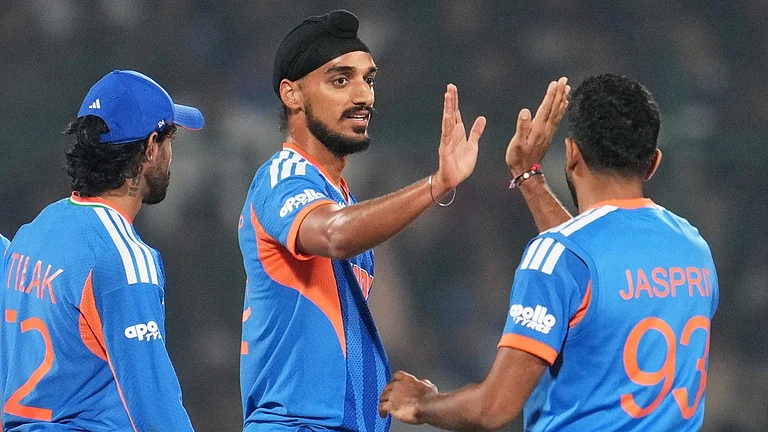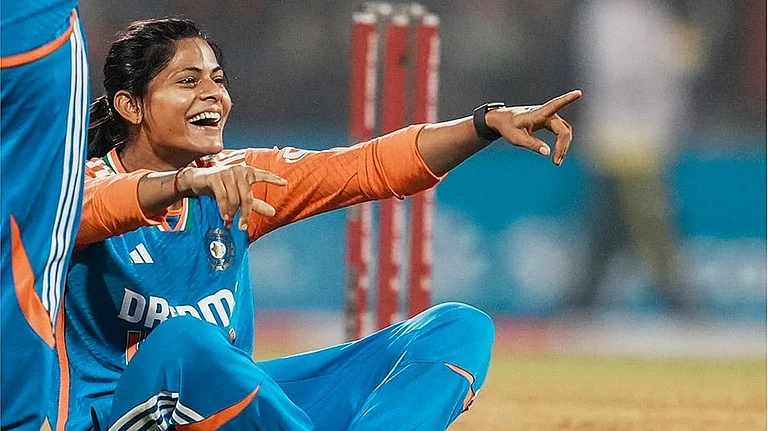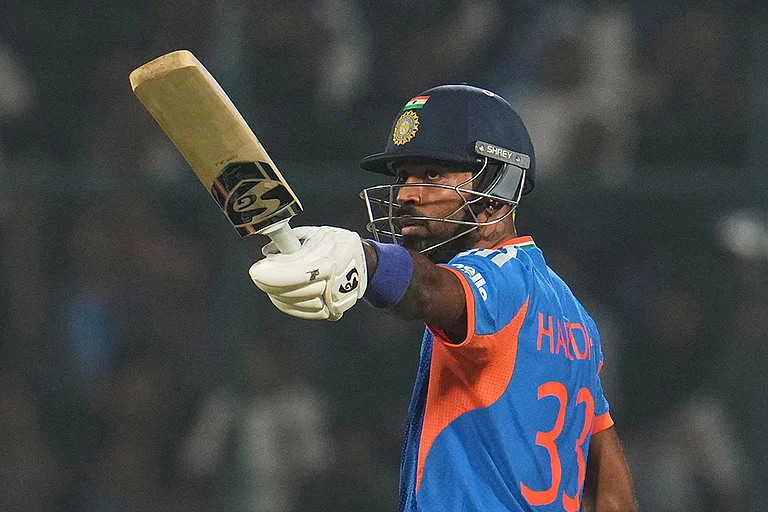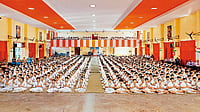2014 Assembly
- BJP 37
- JMM 19
- JVM (P) 8
- Congress 6
- AJSU 5
- Others 6
- Total Seats 81
***
Hard facts first. In the 19 years since the state was carved out of Bihar, Jharkhand has never had a single-party government. And the only chief minister to complete a full term is incumbent Raghubar Das. And between these two extremes lie the fate of the ruling BJP as the state goes to the polls, in five phases, from November 30. From trying to douse a crippling rebellion within the party and facing a political backlash by angry allies, the BJP appears to be as comfortable as a camel in the Arctic. And a string of unexpectedly poor performances in other states—Maharashtra and Haryana—hangs over Jharkhand, known to be one of the most politically fickle states in India.
On November 18, senior BJP leader Saryu Roy filed his nomination papers as an independent candidate against Das from Jamshedpur (East), days after resigning as a minister. The rebel leader, critical of the chief minister for alleged irregularities in the government’s functioning, was apparently peeved at his name not appearing on any of the list of candidates released by the BJP so far. This was the latest in a series of setbacks for the BJP ahead of the polls. Over the past few weeks, the BJP has seen its allies pull away to contest the polls on their own; among them is its long-time ally and coalition partner, the All Jharkhand Students’ Union (AJSU), which was apparently not happy with what the BJP was offering in the seat-sharing talks. The upshot of this is that BJP and AJSU will face each other in more than 15 of the 81 constituencies. Another former ally, the Lok Janshakti Party (LJP) is contesting alone in 50 seats while the Janata Dal (United) is also likely to go solo.
Faced with an unprecedented situation, the state BJP leadership is downplaying the rebellion within the party. “Our party is aware of the entire matter. The central and state leadership will take a call at the right moment,” says Pratul Shahdeo, a party spokesperson. But with just over a week before the polls, time may be running out for the party, though Shahdeo is confident of winning “more than 65 seats”.
The BJP’s calculations appear way over the mark. In 2014, BJP had won 37 seats, while the AJSU bagged five. AJSU president Sudesh Mahato says that his party extended support to BJP as a commitment to former PM Atal Bihari Vajpayee, during whose tenure Jharkhand became a state. He says except for 2014, his party always contested elections without a partner. “In 2014, I agreed to their conditions for the stability of this government. But I can’t sacrifice my party for the sake of power. The BJP has to first fulfill their promises. They failed on all counts,” says Mahato, keeping the door open for post-poll equations with possible new allies.

Political analysts say that the BJP’s break-up with AJSU will be a setback for the saffron party as the latter enjoys a significant voter base among the Kurmi community and in tribal pockets, especially in the Chhotanagpur region. They also feel that by going solo, both the BJP and AJSU are looking to increase their individual tallies and consolidate their support base among the tribal community. Other factors could also dent the BJP’s hopes. “It may not be a cakewalk for the BJP because of three factors. One is that, they have no alliance. The Maharashtra and Haryana results have created a general perception that this party is not invincible. There will also be anti-incumbency working against” says Sanjay Kumar of the Centre For Study of Developing Societies. The BJP’s biggest weapons—Ram temple and Kashmir—are also likely to be less effective in a state with a 28 per cent tribal population. “The grand alliance (of Congress, JMM and RJD) seems to be stronger compared to 2014 and 2019 Lok Sabha polls. BJP will have to work harder. There may be multiple parties contesting, but I see a contest between BJP and the JMM-Congress alliance. My sense is that roughly 70 per cent votes will be divided between these two,” Kumar adds.
The Congress, by itself, looks unlikely to be in a position to challenge BJP. And its alliance with the JMM and RJD to has come about after much dithering though party leaders deny any strain between the partners. “Our alliance is concrete and intact, while the BJP’s alliances are falling all over the country. In Jharkhand, it’s BJP versus its allies. There’s complete breakdown within BJP itself. There is huge anger against the government,” says state Congress in-charge R.P.N. Singh. The party has also made it clear that JMM chief Hemant Soren is the unanimous choice for the chief minister’s post. The Congress will contest in 31 seats, RJD seven seats, while JMM will contest in 43 seats. Talks with Babulal Marandi’s JVM (P), however, fell through.
Hemant Soren says the wind is blowing in favour of the alliance this time and his focus in the campaign are “grave issues” such as unemployment, tribal unrest, and the controversial land acquisition law, which many fear could lead to tribals losing their rights over forest land to corporates. Soren also concedes that it was a mistake to fight separately in the last assembly elections. “We would have won if were together,” he adds. Congress leaders also say that recent state elections have come as a good learning experience for the party. “We have learnt lessons from Maharashtra. We have to fight together and work as one,” says Congress state unit president Rameshwar Oraon.
Whether the BJP has learnt lessons from Maharashtra is a different story, though party leaders appear unfazed by the desertions. “Parties like LJP and JD(U) have no base. Also, drifting away of allies is not a new phenomenon in the state. Defections happen in all parties on a daily basis,” says BJP leader Kamal Bhagat. Among those who switched sides include the party’s former chief whip and influential leader Radhakrishna Kishore, who joined the AJSU recently.
When Prime Minister Narendra Modi and home minister Amit Shah fly into Jharkhand to rouse the voters, they will have much more than just one state to defend. In November 2018, the BJP had chief ministers in 16 states. A year later, the party is in power in 12. On both sides of Modi’s spectacular return in the 2019 Lok Sabha polls they saw disconcerting losses in four crucial states. Can they prevent another one from slipping from their hands?


























